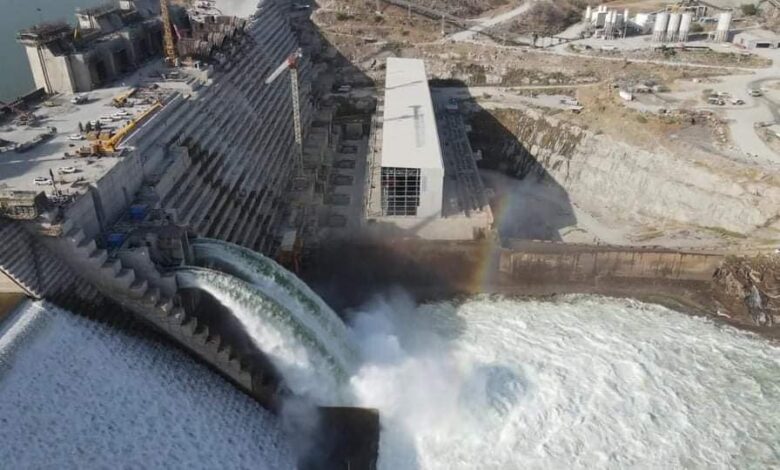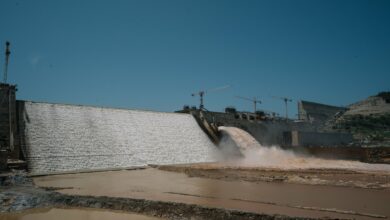
Egyptian scientist Essam Heggy published a study in the Nature scientific group proposing solutions to generate hydroelectric power from the Grand Ethiopian Renaissance Dam (GERD), without causing water deficit downstream in Egypt.
The study proposes generating 87 percent of the total hydroelectric power from the GERD, without significant negative impacts on downstream countries, which will improve the stability of water resources in the Nile Basin countries.
The study shows that improvements in dam operation and improved water policy management are the cornerstone for overcoming conflicts related to water crises in the Eastern Nile Basin, the Cairo 24 news website reported on Tuesday.
The main objective of the study was to develop flexible operating policies for the GERD in order to reduce the negative impact on Egypt and Sudan through drought mitigation measures.
The solution lies in water management in dams through improved operational policies that can reduce water deficits in downstream countries, especially Egypt, through four intermediate operational policies that aim to mitigate the impact of drought and ensure the sustainability of water flow.
Proposed operational policies
- Managing the level of operation according to drought.
- The policies depend on different levels of operation of GERD to achieve a balance between power generation and ensuring the continuity of water flow.
- The policy includes levels of production reduction to avoid major impacts on downstream dams.
- Identify specific mitigation policies during prolonged droughts
- The study developed a set of policies – P1 to P7 – aimed at maintaining water flow in the Aswan High Dam while maintaining the sustainability of power generation.
- Through simulation of specific operational processes, results emerged showing that generation can be maintained with minimal loss, avoiding major water problems for Egypt.
However, the study noted several main challenges :
1- Climate change and its impact on drought
Studies have shown that the increase in the severity of drought due to climate change may significantly affect the water budget.
- Multiplicity of policies and unification of agreements
- The research indicated that gaps in international negotiations contribute to the escalation of water conflicts.
- Improving coordination between the Aswan High Dam and GERD is necessary to avoid ongoing problems.
Heggy provided some basic recommendations to avoid future problems, by:
- Establishing a joint framework between riparian states
- Researching recommendations that call for increased coordination between Egypt, Ethiopia and Sudan to reduce water conflicts.
- Adapting to climate change through flexible strategies
- Studying the impact of climate change on drought helps prepare for extended periods of drought.
The proposed policies are expected to contribute to ensuring energy stability in the region while maintaining the water balance of downstream countries.




